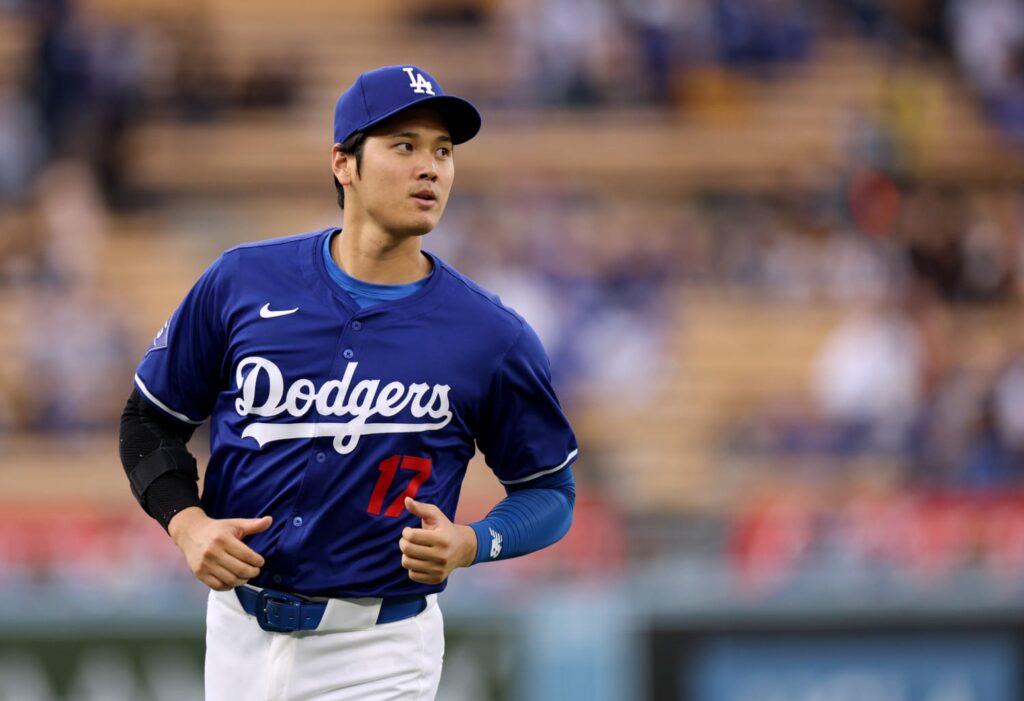Two lawmakers pushing a bill aimed at regulating the sports betting industry say there is a silver lining in the scandal involving Los Angeles Dodgers baseball phenom Shohei Otani's Japanese interpreter, saying gambling He said it would shine a spotlight on the epidemic of addiction.
“This situation clearly illustrates the impact and harm that gambling addiction can cause,” said Paul Tonko, who introduced the SAFE Bet Act this month to address what he called a “public health crisis.” said Representative (D.N.Y.).
Mr. Tonko and Sen. Richard Blumenthal (D-Conn.) both stole $4.5 million from Ohtani to pay back a Southern California bookseller whose Ippei Mizuhara is under investigation by the U.S. government. The claim was filed before news of the suspicions broke out.
“With the widespread legalization and promotion of sports betting, these types of incidents will become more common in the future,” Tonko said in an emailed response to questions from NBC News. “We have a duty to address predatory practices in this industry and protect consumers, and that is exactly what my SAFE Bet Act aims to do.”
The legislation would require states to adhere to certain rules related to sports betting, including advertising, deposits and the use of artificial intelligence.
The American Gaming Association, which advocates on behalf of the industry, said the Ohtani case involved illegal gambling and that lawmakers should focus on that.
“It should come as no surprise to anyone that a pervasive illegal market persists and continues to prey on Americans,” AGA spokeswoman Kate DeBaun said in a statement. “This only strengthens the need for federal action against illegal gambling operations that target vulnerable Americans, steal tax dollars from communities, and undermine regulated markets. We applaud the Department of Justice for asking the Department of Justice to investigate and enforce the law.”
The Dodgers fired Mizuhara, Ohtani's translator and confidant, on Thursday after Ohtani's lawyer claimed he was the victim of “grand theft.”
On Friday, Major League Baseball announced it had begun an investigation into Suwon's alleged ties to illegal gambling. Specifically, NBC News reports that the charges against Mizuhara focus on wire transfers totaling at least $4.5 million from Ohtani's account to a Southern California bookbinding business that is currently under federal investigation. Ta.
While the Ohtani case concerns illegal gambling, it comes amid intense scrutiny of the rise of legalized sports betting in the United States, including the ready availability of sports betting through mobile apps and the advertising on those apps. The near ubiquity of gambling has raised concerns about whether the industry needs gambling to become more tightly regulated.
Those concerns include some players and coaches who have recently begun speaking out about gambling. Cleveland Cavaliers head coach JB Bickerstaff recently said sports betting has gone “too far” and that he is receiving threats from gamblers. Tyrese Haliburton, one of the NBA's rising stars, said he feels like he is a “prop” to gamblers and that his social media is full of talk about gambling.
That led to some action.
In January, Blumenthal signed the Gambling Addiction Recovery and Treatment Act, which aims to prevent sports betting companies from targeting problem gamblers and secure federal funding for gambling addiction research and treatment. GRIT) was introduced.
“High-profile cases of gambling addiction serve as an urgent reminder and warning of the problems associated with gambling,” Blumenthal said in an email response. “But what concerns me more is that as gambling becomes more prevalent in society, addiction is a silent epidemic that is hitting Americans in general, and young people in particular, harder and harder.”
Blumenthal said there was an urgent need to invest in treatment programs “before the problem escalates further.”
“Gambling companies must recognize their responsibility to protect gamblers from addiction,” the senator said.
With so much attention on Ohtani's sports betting scandal, Keith White, executive director of the National Gambling Issues Council, said, “The opportunity is ripe to pass sensible legislation like the GRIT Act.”
“There has never been more bipartisan interest on The Hill to do something about sports betting,” White said.
The American Gaming Association opposes the GRIT Act, Chris Silk, the organization's director of government relations, said in a statement, but noted that “Blumenthal's efforts to combat illegal gambling and address problem gambling” “We stand ready to work with him and other members of Congress.” Please no longer enshrine the vicious tax police and give criminals an advantageous position. ”
Six years ago, the U.S. Supreme Court struck down a federal law that limited regulated sports betting primarily to Nevada. Since then, legal gambling markets have emerged in 37 states, in addition to the District of Columbia and Puerto Rico, and the industry has won more than $337 million in wagers.
Tonko said the sports betting industry has been operating in a “wild west, largely unregulated environment” since 2018.
Mr. DeBaun disagreed.
“The legal sports betting industry is one of the most highly regulated in the United States, and we are proud of how we meet and exceed these standards to protect consumers,” DeBaun said in a statement. ” he said. “This includes oversight by 5,000 regulators across the country who establish and enforce a strong framework that protects players and supports competition.”
Still, industry commentators like blogger Ben Krause write that it's easy for bettors to lose their shirts in the sports betting industry.
Some states, particularly Florida, are reporting an increase in calls to gambling addiction hotlines.
“Having an addictive vice like mobile sports gambling in your pocket all day long is a real problem,” Kraus wrote on the Slow Boring site in January. “Since 2018, $220 billion has been wagered on legal sportsbooks, with annual totals increasing by an average of 22% year-over-year. has increased.”


